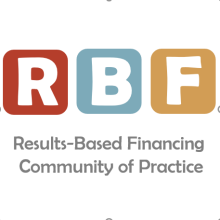Results-based financing (RBF), the umbrella term for mechanisms like pay for success (PFS), can be appealing for improving outcomes in developing countries, which often face tight fiscal constraints and limited capacities to implement public programs. However, shifting political priorities can make sustaining these investments challenging. This is where trust-building and community involvement are integral to encouraging buy-in and promoting sustainability.
The RBF program, called SUPER 18, is a component of the Integrated Community Development Project, which was launched to address Vision 2030’s priority areas. SUPER 18 aims to enhance basic service provision in some of the most vulnerable areas in the country. With added trucks, bins, and other waste infrastructure from the project’s funding, the Jamaican government is expected to collect waste in these communities more regularly. Any improvement in waste collection will be indicated by an increase in scheduled NSWMA pickups. This will make a significant difference in communities that before the program received minimal or no waste collection services. When the communities see the government making an effort to improve services, they are more likely to participate in keeping the streets clean.
A prior urban development project in Jamaica, the Inner Cities Basic Services for the Poor Project, began tackling the waste management challenges by funding a new truck for NSWMA’s collection fleet, as well as additional dumpsters in selected communities. However, providing waste infrastructure does not always guarantee clean streets. Waste management has to be coupled with community education on how to properly dispose of trash and keep neighborhoods clean. As explained by Silpa Kaza, Urban Specialist at the World Bank, “Infrastructure does not [lead to] collection—collection results from behavioral change.”
To encourage this behavioral change, Jamaica designed SUPER 18 with targeted community engagement activities. The evaluator was brought into the project early and began holding regular stakeholder meetings in each community to engage them in the project and build trust. Environmental wardens, all members of the community, were hired to educate community members and enforce waste collection and separation practices. Along with the community-based organizations (CBOs), the wardens will be held accountable for improving neighborhood cleanliness. Incentives will be provided to the wardens and the CBOs in the form of bonuses, and NSWMA will receive additional trucks to sustain their enhanced service delivery.
SUPER 18 illustrates the key role that community engagement and trust-building play in encouraging behavioral change. In this case, the RBF approach showed the importance of considering the local context in order to facilitate buy-in. Emphasizing community engagement was a key contributor to some preliminary accomplishments. The project in Jamaica still has three more years of implementation before full outcomes can be measured, but these early observations demonstrate the incremental benefits of results-based mechanisms for combatting social challenges.
Special thanks to Silpa Kaza, Urban Specialist at the World Bank and solid waste management lead on the Integrated Community Development Project in Jamaica. The Project's team lead is Emanuela Monteiro and was formerly Eric Dickson. For more information on the RBF component please click here.




Blog » Article: Improving waste management through results-based financing
Article: Improving waste management through results-based financing